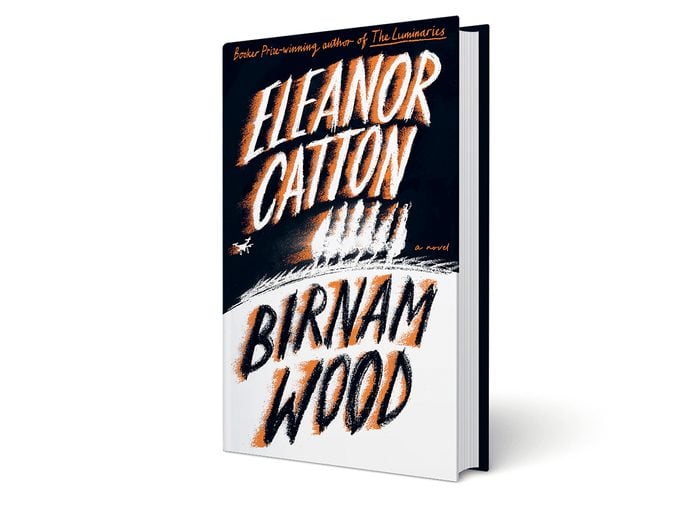Move Over Sci-Fi—Here Comes Cli-Fi, or Climate Fiction

Eleanor Catton's latest novel, Birnam Wood, ushers in a new era of science fiction.
Where the glory days of mid-century science fiction were fuelled by fears of nuclear war and robot overlords, cli-fi focuses on the havoc wrought by the very real threat of climate change. And the pulse-racing Birnam Wood, from Canada-born, New Zealand-based author Eleanor Catton, is creepy cli-fi at its best.
The book takes place in 2017, as climate terror and predatory capitalism converge in a web of conspiracy and murder (the title fittingly comes from an ominous prophecy in Macbeth). At first blush, though, its premise doesn’t sound much like a thriller.
Friends Mira and Shelley are the founders of Birnam Wood, a guerilla gardening collective in New Zealand that surreptitiously plants crops next to highways and on abandoned land. By chance, Mira meets Robert Lemoine, an American tech billionaire who tells them he put down a deposit on a farm in their country, where he plans to build a luxury bunker for the apocalypse, and offers them funding.
Of course, as these things tend to go, the generous act is too good to be true. To the Birnam Wood gardeners, Lemoine represents the possibility of transforming their small-scale operation into something that can change the way society looks at land use. To Lemoine, Birnam Wood is nothing but an experiment in human behaviour. He’s the cat, and the women are the toys on strings.
A major inspiration for the novel is the real-life controversy that arose a few years back when Peter Thiel, the American billionaire and co-founder of PayPal, bought a large tract of land on Lake Wanaka, an isolated region in southern New Zealand. Shielded from the elements and, presumably, the apocalypse, the country has become popular with doomsday-prepping plutocrats seeking an escape at the end of the world.
Thiel, for example, gained New Zealand citizenship—arguably to avoid going through the real estate red tape—and planned to build a mansion into the hillside with a meditation pod and a spa. (The proposal was officially quashed in 2022, after a lengthy process and public outcry.)
In her work, Catton is visibly wary of wealthy foreigners coming to New Zealand and tapping its resources: her last novel, 2013’s The Luminaries, was an 850-page Dickensian murder mystery set during the country’s 19th-century gold rush. At 28, Catton became the youngest-ever winner of the prestigious Booker Prize and later adapted The Luminaries into an award-winning miniseries for the BBC.
A decade after The Luminaries, she’s packing an erudite novel of ideas into a rollicking eco-escapade. The characters populating the book are amateur philosophers who spout blistering tirades and banter with the speed and confidence of Aaron Sorkin creations. They quarrel about whether capitalism can be used for good, the respective virtues of libertarianism and collectivism, and that ever-pressing question of what it means to sell out.
The genius of Catton’s latest novel is in its pacing. The first half builds deliberately, almost excruciatingly slowly, as she sets up her characters and plots like chess pieces. Then, suddenly, everything happens at once, and it becomes impossible to stop turning the pages. Disparate stories collide in deliciously surprising ways; endless talk gives way to galloping action; and the tension between Mira, Shelley and Lemoine festers its way to a conclusion you could never have expected.
Next, check out this new novel by Cherie Dimaline—and learn why it should be next on your reading list.






